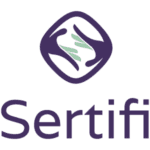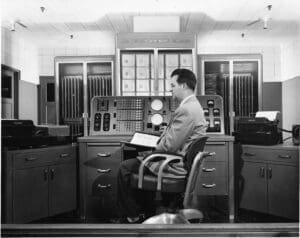 It only takes five minutes. A study by Cornell’s Center for Hospitality Research shows that a 5-minute wait at check-in can lead to a 50% decrease in guest satisfaction. No beautiful lobby or warm coffee can make up for long queues. In a fast-paced world where guests expect self-service and personalization, lodging properties should assign resources to fully optimize their front-desk operations and deliver the attention that every guest deserves.
It only takes five minutes. A study by Cornell’s Center for Hospitality Research shows that a 5-minute wait at check-in can lead to a 50% decrease in guest satisfaction. No beautiful lobby or warm coffee can make up for long queues. In a fast-paced world where guests expect self-service and personalization, lodging properties should assign resources to fully optimize their front-desk operations and deliver the attention that every guest deserves.
Various software solutions are available to automate workflows and improve front-office management. A virtual front desk can include many tools, including mobile check-in, digital keys, chatbots, and guest messaging solutions. They are increasingly popular with hotel operators, staff, and guests, offering a quick, easy, and contactless experience.
It’s important to note that technology isn’t designed to eliminate human interaction but provide hotel guests the option to serve themselves at critical touchpoints along the traveler’s journey. It’s about putting customers in charge of their experiences and decision-making.
Why the hotel front desk is going virtual
According to Salesforce, 58% of service organizations worldwide have some form of automation. The increasing adoption of self-service solutions within the hospitality industry has forced lodging operators to rethink their approach to guest service. Thankfully, there are ways to take advantage of automation without sacrificing the human touch.
How a virtual front desk can benefit your property:
1. Increase speed and efficiency
Technology can collect and analyze information quickly and accurately, and faster service means fewer waiting times, errors, and hassle for guests. To increase efficiency and productivity, think of investing in software that automates repetitive tasks and transactions typically performed manually by employees. Speed and efficiency are key factors in providing a quality customer experience and remaining competitive in today’s marketplace.
2. Overcame labor shortages
The hospitality industry is amid a prolonged labor crisis. Lodging operators must rethink their approach to operations to find an efficient way to run with minimal staff. Software solutions can streamline internal processes at the front desk, housekeeping, maintenance, and across departments. They can reduce operating costs and lower dependency on an unpredictable labor market.
3. Improve staff retention
If hiring new staff is a challenge, retaining talent should be a priority. Technology and automation can help you by taking care of repetitive and tedious tasks, giving your staff time to focus on value-driven tasks such as delivering personalized experiences. Your staff will feel more fulfilled and motivated, simultaneously increasing employee and guest satisfaction.
4. Gain a competitive advantage
Self-service is everywhere: banking, retail, telecommunications, air travel, supermarkets, and more. Why would it be different at your hotel? Remember that guests don’t compare your services only with other hotels. They are used to self-service and automation and the speed and efficiency they get in different industries. Today’s guests expect everything digital and at their fingertips.
5. Improve guest experience
By automating repetitive tasks, digital solutions can empower employees to provide more personalized service. Staff can focus on delivering unique and memorable experiences, which can also help generate more revenue for the property. To further connect with your guests, answer their questions promptly, and meet their needs every step of the way, consider investing in a guest engagement solution. This type of technology enables guests to contact you on the messaging channel of their choice across multiple touchpoints on the traveler’s journey.
Virtual operations and real connections
Hotels should be looking into how to continuously optimize processes to meet changing guest expectations and market conditions. A hybrid model is emerging today as lodging operators determine which front-office operations should be automated and where human interaction is required. While many customers enjoy in-person interactions, a growing proportion of travelers prefer self-service.
When is it appropriate to automate services? Before changing your operations, it’s fundamental that you first understand your target audience. You must consider how changes affect service quality and guest and employee satisfaction. Input and feedback are excellent sources for determining the right strategy.
As helpful as technology is, it can’t replace employees’ attention to detail, intuition, multitasking skills, and creative problem-solving. In modern hotels, it empowers staff. With technology to support operations and reduce the manual workload, front desk agents have more time to spend with guests, creating memorable experiences.
Whether virtual or in person, travelers expect quicker, more efficient service from the front desk. Fortunately, hotel technology solutions have never been more accessible to independent properties. Adopting front desk automation increases efficiency, productivity, revenue, and profitability while upholding customer satisfaction.

















